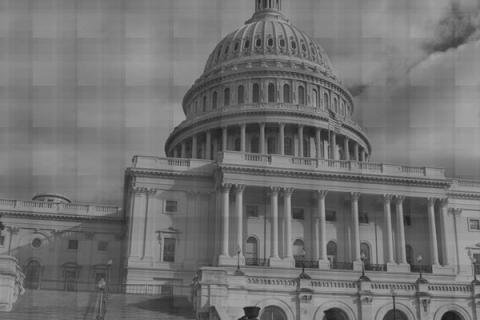In a recent news advisory, Wells expressed some optimism about California's future. When voters found out about the large corporate backing of Props 16 and 17 from PG&E and a car insurance company respectively, she says they responded by voting those amendments down.
She did, however, lament the fact that the same voting public could not make a similar connection between powerful special interests and their promotion of the top two open primary plan. But it's not the fault of voters, insists Wells. She blames misleading ballot language and those within the government (namely Jerry Brown) who sanctioned Proposition 14 to read as such: “Increases the right to participate in the primary elections.”
If Prop 14's ballot statement was supposed to be the whole truth and nothing but, opponents felt the following statements would have better defined the proposal: '...establishes more security for incumbent dynasties;...allows unfettered corporate access to heavily lobbied candidates;...effectively eliminates third party, independent and pesky write-in candidates from the general election.'
Here is how Ms. Wells sees the new law playing out in a hypothetical 2012 state-wide election:
“Only two candidates would be left in November, when Prop 14 would exclude all the independent, alternative political parties like the Green Party, Peace and Freedom, and Libertarian. Prop 14 would favor only Democrats and Republicans that are incumbents or highly funded.”
The consensus amongst Prop 14 opponents (of whom members of the two major parties are included) is that the amendment severely limits choices for voters. Proponents of the top two open primary claim that it will lesson fringe pandering in primary elections and offer more moderate candidates. But this latter scenario is exactly what many open primary opponents fear.
Chelene Nightingale, Independent candidate for governor, has quite a grim view of the new ballot measure, but her sentiments more or less sum up Prop 14 opponents' worst fears:
“Blue districts will end up with only two democrats as choices in their local elections and red districts will end up with only two republicans as choices. The “lesser of two evil” votes that we fought so passionately against will now be the only general election options. As both parties move further to the left beholden to unions, corporations, and global interests, the people are the ones who lose as the candidates will no longer feel any obligation to represent them. I foresee an eventual one-party system due to Prop 14, since the two main parties will be infiltrated with opposing party candidates just to win in their districts.”
The “moderation” or “centrism” being touted by Prop 14 supporters is seen by many Independents as the ultimate form of political posturing. In opponents' minds, 'moderates' tend to serve a type of cronyism which has had a long usage in this country. Consequently, they believe Prop 14 will do nothing to break the cycle of political leaders who find their way into office on campaign promises they never had any intention of keeping.
The ultimate fear is that the new law will only strengthen the current political dynamic in which special interests and their political allies, in the words of Wells, “do not allow the actual problems to be addressed, nor real solutions to be put on the table.”
It's also possible, opponents claim, that California's new method of elections will only reinforce negative campaigning. Marginalizing opponents with misleading or false ads might already be a tolerated political practice, but such advertising would become institutionalized and exploited by candidates with the most money and largest propaganda force.
Along with offering no incentive to make campaigns policy-based and factually honest, Wells fears that Prop 14 will only encourage the quality of candidates to decline. She says Prop 14 will establish an electoral system where campaigners “say the right words so that voters will vote for them, and give just enough goodies so that we'll stay in line, but at the end of the day, they will not alienate their corporate sponsors.”
Perhaps the most poignant example of this – of career politicians never biting the hand that feeds them – is the apparent “false fight” waged by the Democratic and Republican parties against Prop 14. Referencing campaign contribution figures from mid-May, Wells points out that the opposition was woefully underfunded by a ratio of 20 to 1. Pro- 14 donations amounted to over $4 million compared to $200,000 raised by the opposition.
The majority of Prop 14 funding came from big insurance companies, high tech Silicon Valley corporations such as Hewlett Packard, and Governor Schwarzenegger. “People voted for [Prop 14] for the exact reasons they would have voted against it if the history in other states were known,” says Wells. She added that since a similar voting system was established in Washington State several elections ago, no independent or third parties have made it to the November general elections and now it seems fewer even run.
The situation in Washington State has led to multiple law suits from major and minor parties. A federal judge in Seattle is examining the legality of top two primaries in a case that could directly affect California's new ballot measure.
“Corporations should never be in control of our elections, our economy, or our culture, for the simple reason that legally they do not have the complex set of goals and values that real people have,” says Wells adding, “People want health, happiness, love, security, fulfillment. The simple goal of a corporation is financial profit.”
One solution to lesson the profit motive for campaign financing, she suggests, would be proportional representation schemes.

